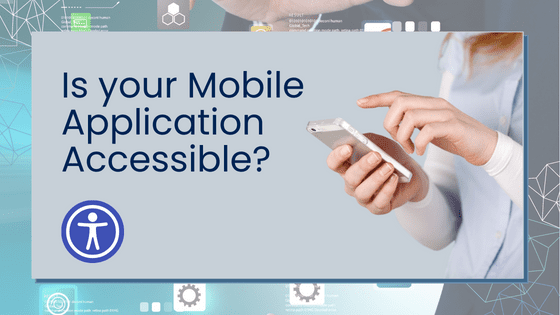In a recent order, the Chief Commissioner for Persons with Disabilities (CCPD) stated that private establishments are also bound by the digital accessibility requirements under the Rights of Persons with Disabilities Act, 2016 ( RPwD Act). Practo has been recommended to make its app accessible no later than 9 months from the date of this order and the Health Ministry to write a letter to Practo.
The Boom
The mobile app industry in India is growing at an exponential rate. By 2022, the total number of mobile app downloads is projected to reach 6.5 billion. With such a large market potential, it’s no surprise that more and more businesses are starting to develop mobile apps. However, as these apps become more commonplace, it is important to consider the needs of all users, including those with disabilities.
Accessibility should be a key consideration for any mobile app development project. By taking accessibility into account, you can ensure that your app is usable by the widest possible audience. Additionally, accessible apps tend to be better designed and more user-friendly overall.
At BarrierBreak, we believe Making any website or application accessible on mobile devices is equally important as making them accessible on desktops. Our experts in mobile accessibility testing will help you seamlessly integrate accessibility in your mobile applications.
How did it all start?
Until 2016, digital accessibility of ICT-based products and services (including websites and apps) was not recognized in the Indian legal system. However, with the enactment of the Rights of Persons with Disabilities Act, 2016, accessibility has been made a statutory obligation that every service provider whether public or private has to comply with.
Further, with the notification of the Rights of Persons with Disabilities Rules, 2017, Guidelines for Indian Government Websites were made mandatory as the standard of compliance for ICT (a term defined under the act which includes apps and websites).
The rule as it stands today, led to two confusions, one around the applicability of GIGW to private players, and two, only the web standards forming part of GIGW in relation to a website are applicable and not the mobile application-related standards which were included in the GIGW in 2019 because of the way the rule 15 of the rules was worded.
Given the limited users with disabilities which roughly translates to 2.2% of our population as per the data available from the survey conducted by NSSO, the majority of businesses and service providers have ignored the needs of people with disabilities.
What did they say?
“With a view to ensure compliance with the law and to solve the problem of inaccessibility of websites and apps because of which persons with disabilities face problems on a day-to-day basis, a collective initiative called Mission Accessibility, founded by Mr. Rahul Bajaj (Roads scholar and a lawyer) and myself Amar Jain (a corporate lawyer and accessibility professional) both of whom are blind, worked through the route of litigation to get the legal position clarified through the judicially speaking reasoned order pronounced by the Chief Commissioner for Persons With Disabilities.” says Amar Jain.
Amar Jain continues, “The order, interalia clarified that the law including GIGW are applicable to private players, and not only website, but all platforms be it apps or others, will have to be compliant with the accessibility standards. Further, the order clarified that GIGW and BIS standards are good enough directions issued by the Government based on which every private player can comply and ensure ICT accessibility.”
Additionally, the order established a settled process to ensure compliance through the relevant ministry by analyzing the allocation of business rules and accordingly upheld the fact that the Directorate General of Health Services, Ministry of Health and Family Welfare Government of India is the nodal ministry for governing health-related matters, therefore it is the competent body alone to issue relevant directions to the service providers for ensuring compliance with the ICT standards in relation to websites and apps offered in the healthcare sector.
In a country where over billions live with some form of disability, it’s essential that businesses start considering accessibility when developing their apps. By making mobile apps accessible, businesses can not only positively impact the lives of those with disabilities, but also tap into a large and untapped market.
Get in touch with us at sales@barrierbreak.com for getting your mobile applications evaluated by a team of accessibility experts as per user experience and accessibility guidelines.
